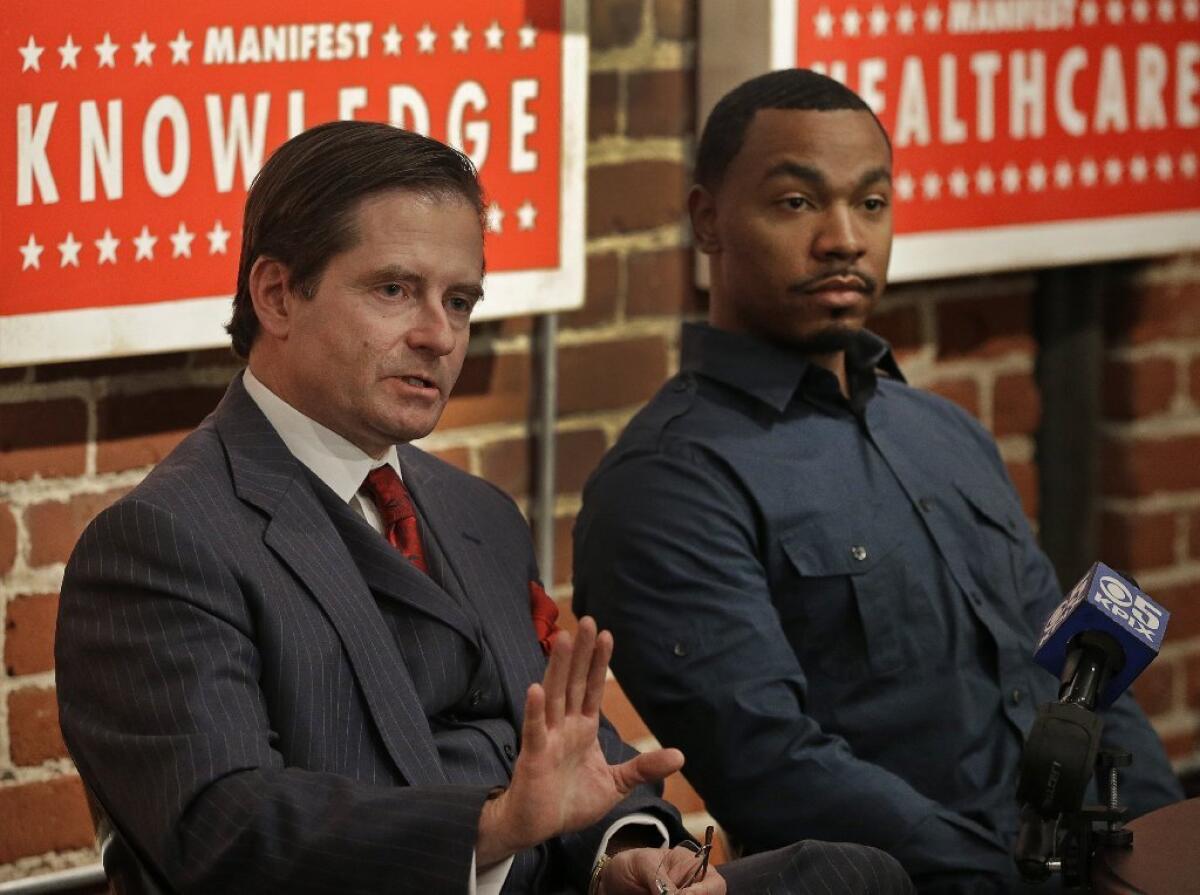Jahi McMath’s lawyer thinks families, not doctors, should determine death

Could the case of Jahi McMath get much worse? Yes, apparently. According to a report by CBS San Francisco, the lawyer for Jahi’s family is saying that her case might set a precedent for future cases of brain death. And then the lawyer, Christopher Dolan, came out with this legal zinger, according to CBS:
“Dolan said that families — not a doctor — should determine death and that anything less would be a violation of the family’s right to freedom of religion.”
Now, it appears, things are tipping over from one rare and upsetting situation into a truly nonsensical idea about overturning our entire legal concept of death. Under state law, families do not declare death. Doctors declare death. What if a family decided a relative was dead before the hospital said it was so? And what sort of long-term care would be devoted to cadavers under this kind of scenario? For how long? And at whose expense? What about societal rules on the correct and respectful way to treat the bodies of the deceased?
Dolan is right about one thing: The courts have never dealt with this issue in a satisfying, overarching way that makes such cases easier to resolve sensibly and consistently. And the court decisions in the Jahi McMath case unfortunately opened the door to this disturbing notion that doctors of the future, no matter what their expertise, no matter how clear the science and medicine in the case, will just be sort of death advisors to families who make the ultimate call.
The judge agreed that the 13-year-old had died after surgery to remove various tissues in the sinuses and throat — but then also agreed that the body should be kept on a ventilator for at least a week more.
According to bioethicists, this is typical. David Magnus, a bioethics professor at Stanford University, told me that judges don’t want to be accused of killing someone, even when it’s clear the person is deceased. They also are used to allowing delays and deferring to higher courts. That’s not a pattern that goes well with the need to make decisions in life-or-death situations.
In this case, it was a death situation, and the body of a young girl is unfortunately having air forced into the lungs, and being given minerals, hormones and antibiotics, according to the family.
What Magnus suggests as a possible solution is to have the courts not drop such cases as moot once the patient’s heart has stopped and even the recalcitrant family admits that a loved one is dead. Instead, he said, it would be helpful for the courts to put the question through the legal appeals system so that in the future, judges have clear precedent to act rather than refraining from action.
In Jahi’s case, the courts backed away from deciding either way, which Magnus said is typical. They wouldn’t let the ventilator be removed, but they also wouldn’t require the hospital to insert a feeding tube, which the hospital said would be outside the boundaries of appropriate medical behavior.
It’s easy to understand how a distraught mother might be unable or unwilling to see or concede that the actions at an undisclosed medical facility, where Jahi’s body was moved Sunday night, amount to medical treatment on a dead body. These aren’t decisions families can make from any angle of the topic — they lack the objectivity, the expertise and the legal standing to determine death. Dolan apparently wants to change the last part of that. The courts shouldn’t stand for it.
ALSO:
Blurring the line between life and death
FDA must stand firm in the ‘natural’ food fight
Non-GMO Cheerios are just what the customer ordered
More to Read
A cure for the common opinion
Get thought-provoking perspectives with our weekly newsletter.
You may occasionally receive promotional content from the Los Angeles Times.







